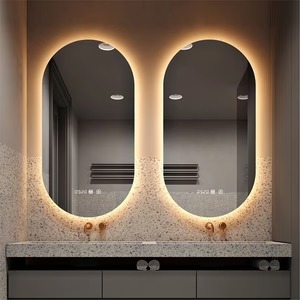Discovering the Magic: The Impact of User Experience Led Mirror Worlds on Society
LED Mirror World, a concept once confined to the realms of science fiction, are now becoming an integral part of our reality, reshaping the way we interact with digital information and transforming various aspects of society. At the heart of this transformation lies the notion of User Experience (UX), which plays a pivotal role in shaping the functionality and accessibility of Mirror Worlds.
Introduction to Mirror Worlds
Mirror Worlds refer to virtual environments that replicate the physical world or create entirely new digital spaces, allowing users to interact with information and each other in immersive ways. These environments leverage technologies such as augmented reality (AR) and virtual reality (VR) to blur the lines between the digital and physical worlds.
Understanding User Experience (UX) in Mirror Worlds
User Experience in Mirror Worlds encompasses the overall experience of users as they navigate and interact within these virtual environments. It encompasses factors such as ease of use, accessibility, aesthetics, and the emotional impact of the experience. UX design in Mirror Worlds aims to create seamless and intuitive interactions that enhance user engagement and satisfaction.
Impact of UX-led Mirror Worlds on Society
Enhancing Communication and Collaboration
One of the most significant impacts of UX-led Mirror Worlds is the facilitation of communication and collaboration. By providing immersive environments where users can interact in real-time, Mirror Worlds break down geographical barriers and enable more meaningful connections between individuals and communities.
Revolutionizing Education
In the realm of education, UX-led Mirror Worlds hold immense potential to revolutionize traditional learning methods. By creating interactive and immersive learning experiences, educators can engage students in ways that were previously unimaginable. From virtual field trips to hands-on simulations, Mirror Worlds offer endless possibilities for experiential learning.
Influencing Healthcare Practices
In healthcare, UX-led Mirror Worlds are transforming the way medical professionals diagnose, treat, and communicate with patients. From virtual surgeries to patient education platforms, these environments empower healthcare providers to deliver more personalized and effective care. Additionally, Mirror Worlds hold promise for improving patient outcomes through immersive therapy and rehabilitation programs.
Challenges and Ethical Considerations
Despite their potential benefits, UX-led Mirror Worlds also pose several challenges and ethical considerations. Issues such as data privacy, digital security, and the potential for addiction must be carefully addressed to ensure the responsible development and deployment of these technologies.
Future Prospects and Innovations
Looking ahead, the future of UX-led Mirror Worlds is brimming with possibilities. Advances in artificial intelligence, haptic feedback, and sensory technologies promise to further enhance the immersive nature of these environments. From virtual shopping experiences to remote workspaces, Mirror Worlds are poised to reshape industries and redefine the way we interact with digital content.
Conclusion
In conclusion, User Experience-led Mirror Worlds have the potential to revolutionize society by creating immersive and engaging digital environments. From enhancing communication and collaboration to revolutionizing education and healthcare, the impact of Mirror Worlds on society is profound and far-reaching. However, it is essential to address challenges and ethical considerations to ensure that these technologies are developed and utilized responsibly.
Unique FAQs
What distinguishes Mirror Worlds from traditional virtual reality environments?
- Mirror Worlds aims to replicate or simulate the physical world, providing users with immersive experiences that closely resemble real-life interactions.
How are UX-led Mirror Worlds transforming the entertainment industry?
- UX-led Mirror Worlds are revolutionizing the entertainment industry by offering immersive gaming experiences, virtual concerts, and interactive storytelling platforms.
What are some potential risks associated with the widespread adoption of Mirror Worlds?
- Risks associated with Mirror Worlds include concerns about privacy, cybersecurity threats, and the potential for addiction or overreliance on virtual environments.
How can businesses leverage UX-led Mirror Worlds to enhance customer engagement?
- Businesses can use UX-led Mirror Worlds to create virtual showrooms, interactive product demonstrations, and personalized shopping experiences that drive customer engagement and loyalty.
What role do government regulations play in governing the development and deployment of Mirror Worlds?
- Government regulations play a crucial role in ensuring the responsible development and deployment of Mirror Worlds, particularly concerning data privacy, digital rights, and ethical considerations.







